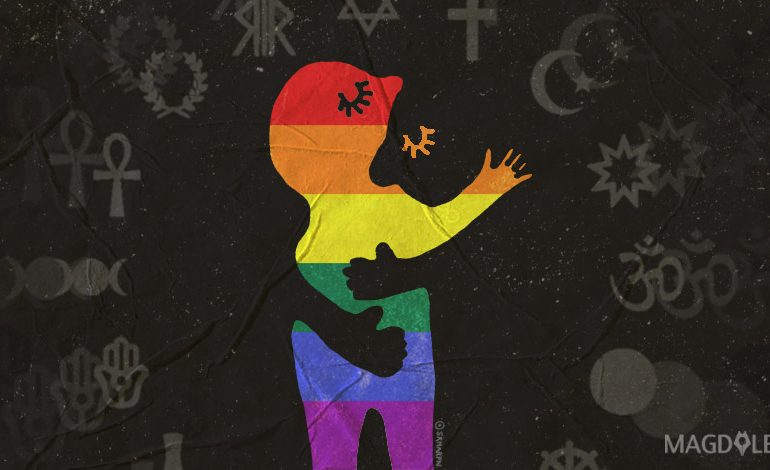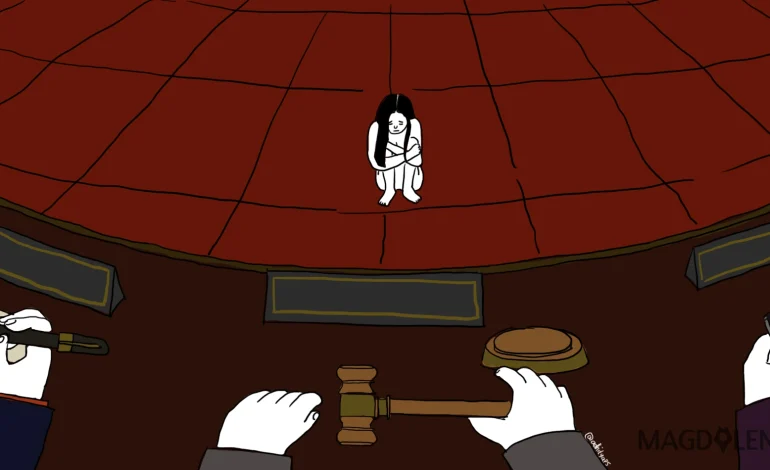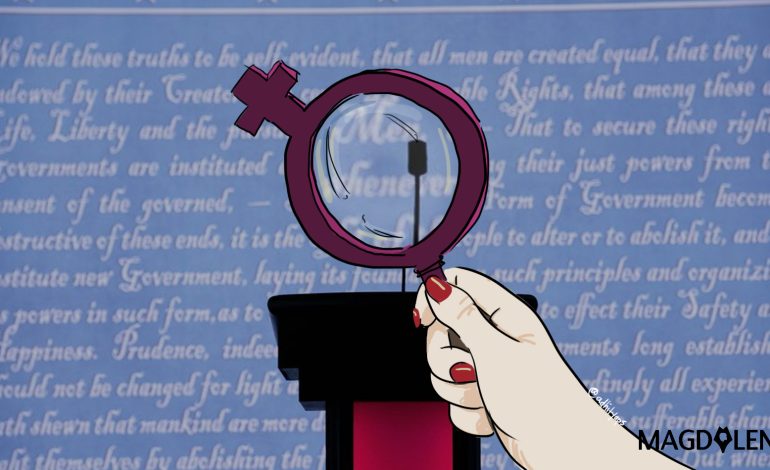The Duality of Being A Religious “Sinner”

I had known her for a while, a recent graduate who worked at a consulting firm in Jakarta. Lana was liberal. She wrote on LGBT issue on her graduate thesis, and some of her pieces have been published on Magdalene. She was also pretty open about her sex life to me. One day I was staying at Lana’s place. We had just had our “sexy time” and I was snuggling up to her when she turned to me still sweating and with messy hair.
“I think I want to start taking the Quran lessons again. I was a child the last time I did,” she said.
Whoa! I definitely did not expect this for a pillow talk. The fact that she randomly remembered about Quran at a moment like this made me wonder, was the sex so bad that I just made a girl repent?
But while it was a bit surprising at the time, it has made me realize that she was not the only person I know who observes their religious teaching, while living what would be seen as a secular – even sinful – life. Some women wear hijab and pray five times a day but drink alcohol. Other people have pre-marital sex, but avoid eating pork at all cost. People have their own ways to justify the discrepancy, to seek peace with themselves.
One of these people was a friend with whom I used to skip Friday prayers and had meals during the day in the fasting month of Ramadhan during our school day. His name is Ricky, a beefy gay guy who stayed in the same apartment building with me. Once I was hanging out at his apartment playing with his iPad when he said, ”If there is a notification from Grindr (a gay dating app), just ignore it. I am going to shalat.”
There was nothing ironic about his remark, which left me baffled. After he finished performing the prayers, I asked him what had made him change.
“I believe that being gay is sinful, but I try to make up for my sins by praying at least, so I don’t sin too much,” he replied.
I tried to convince him that not all Islamic scholars believe being a homosexual is a sin. Some of them interpret the teaching differently. “You don’t have to feel like you’re living in sin,” I told him.
Still, he insisted that being gay is wrong. He chose to see himself as a sinner. Illogical as it seems, I accept his religious conviction.
The thing is if Ricky and Lana chose to be fully devoted, their freedom, particularly biological needs, would be suppressed. If they chose to leave their religion, they would live a life in which all their good deeds would not be rewarded in the afterlife – if there was even an afterlife, as this bad world might be the only place where they could find heaven.
Not everyone can be consistent when it comes to the matter of faith. Some may call them munafiq (hypocritical), but they choose to resolve their internal conflict between fear of going to hell and living the life that they want by finding a compromise, a middle ground.
This middle ground is not only a spiritual matter. A while back I met Laras, a short girl with thin long hair, whose Tinder profile pictures show her looking elsewhere but the camera. We matched, chatted, and decided to meet at a cafe in Kemang, South Jakarta.
Laras was a final year student and had just got a new job as a barista. Our conversation went from her excitement in her new job as a barista, her last breakup, to her parents who want her to marry before she turned 24 or 25. That meant she had only two years before she was to get married, because instead of challenging her parents, she agreed to this deadline. She told me she was sure her parents knew what’s best for her.
“If you are determined, you can have a happy marriage. You just have to be sure,” she said.
Understanding that not everyone has been exposed to feminism, I tried to persuade her with stories. I told her about my life as a child from a broken family, about my friend’s unhappy marriage, and about a family member who experienced domestic violence. But winning a debate competition was easier than convincing her that marriage is not all sunshine and roses.
We talked until the cafe was closed, after which we moved to a nearby bar. By midnight, she told me that before she has to get married, she was resolved to have as many Tinder dates as she could. She wanted to have fun because she knew that by 24, she would have to turn into an obedient wife.
“The key to heaven’s door is in the husband,” she said. For now, she enjoyed the night while she could.
As much as I wanted to argue, I was not there to judge. She was under family pressure that I, a man, have never been subjected to. She was also dependent on her parents. In the end, taking a stand against patriarchy is much easier if you’re well educated, have a stable income, and live in a community that supports you.
Unfortunately, people like Laras, Ricky, and Lana often experience “double rejection.” On the one hand, they must hide their true self because many Muslims do not accept their lifestyle; on the other hand, many of the so-called progressive people, who are supposed to be more tolerant, have a dismissive attitude towards religions, putting them in an awkward position.
To that end, expecting someone to be consistently religious or not religious creates an unrealistic expectation. It ignores different conditions and privileges that someone experiences. Most importantly, the fact that there are things that we can never share in family gatherings, only reminds us that we are just like them.
Illustration by Sarah Arifin






















